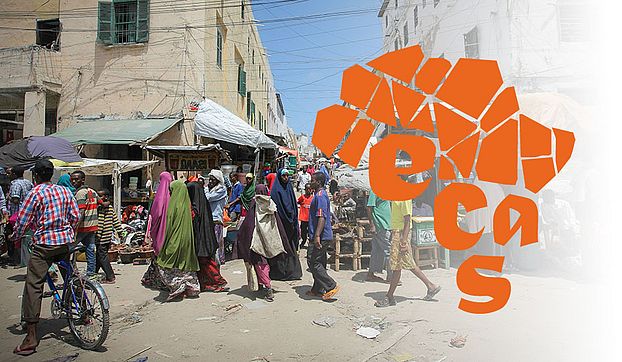/ Events
7th European Conference on African Studies in Basel
“Urban Africa – Urban Africans: New Encounters of the Rural and the Urban” was the topic of the 7th European Conference on African Studies (ECAS). The conference was organized by the Centre for African Studies Basel and the Swiss Society for African Studies. It took place at the University of Basel from June 29 to July 1, 2017. Ralph Weber, Assistant Professor of European Global Studies, participated in a round table discussion.
At 3.5% Africa has the highest urbanization rate in the whole world. The potential effects of these staggering growth rates are relevant for all Africans, both in the urban as well as in the rural areas. By 2040 the continent’s cities are expected to have to accommodate 79 Million additional inhabitants. Between 2040 and 2050 the figure will rise to a staggering 84 Million. The latest UN-Habitat report forecasts that by 2025 Africa’s urban population will outstrip that of Europe and Latin America together. No wonder that a growing number of researchers, institutions and governments are paying more and more attention to urbanization in Africa.
African urbanization trends raise several issues that are of interest to scholars. These range from politics, through economics to social and cultural issues. The key issue at the conference, however, was how urbanization processes in Africa transform conventional objects of African Studies and how scholars of Africa gear up to face such changes. While the urban were prominent, the proposed conference theme has also looked into the entanglements of the rural with the urban, especially with a view to addressing an implicit assumption underlying the study of Africa and which concerns the supposed rural ‘nature’ of the continent as well as the constitutive nature of the tension between tradition and modernity.
Conference Program
In the conference’s four keynote lectures, the speakers explored digitalization in the field of African Studies (Mirjam de Bruijn), showed the relevance of the field through the example of urbane scholarship (Elísio Macamo), approached urbanizing Africans and their notions of identity and belonging (Joyce Nyairo), and took a look at the politics of governing African urban spaces (Edgar Pieterse).
Ralph Weber, Assistant Professor of European Global Studies at the EIB, participated in a round table discussion that focuses on the topic “Africa and the West: The Challenge of Reciprocal Comparisons in the Study of Africa.” Much research, perhaps particularly in studies of politics and economics in Africa, is conducted against the background assumption that African phenomena are fundamentally different from European ones. Owing to differences in social, political, and economic development levels this assumption may seem warranted. But doing comparisons ‘reciprocally’ – where both sides of the comparisons are allowed to be the norm and the deviation – is proving difficult. In this discussion, scholars from Africa and ‘the West’ aim to explore issues bearing on conceptual and empirical comparison with the intention of raising issues concerning the practice of African Studies and its significance to scholarship in general.
Other panels sought to gauge Europe’s continued relevance on the continent by exploring the ways in which the European Union has responded to Africa's shifting international orientation and rapidly changing demographics and urban growth (more information), or investigated the framing of common challenges of urban challenges, accounting for divergent African and European views and the ability to surmount them (more information).
About the Event
The 7th European Conference on African Studies was organized by the Centre for African Studies Basel and the Swiss Society for African Studies. It took place from June 29 to July 1, 2017, at the University of Basel. In total, over 1500 participants presented 1046 papers in 204 thematic panels and engaged in 10 round table discussions, 18 book launches, 13 film screenings and 13 meetings, and four keynote lectures.
The Centre for African Studies Basel is a coordinated research network at the University of Basel, including further institutions such as the Basler Afrika Bibliographien, Mission 21 or the Swiss Tropic and Public Health Institute. It promotes Africa-related teaching at the university and offers MA and PhD programs in African Studies as well as an advanced studies Certificate in African Affairs.
The Swiss Society for African Studies (SSAS) aims at advancing research on Africa, including the organization of conferences to discuss questions of African lifestyles and other aspects of African societies and cultures. Contributing to the circulation of relevant information, the SSAS understands itself as platform for synergies and collaboration between universities and research institutions.

